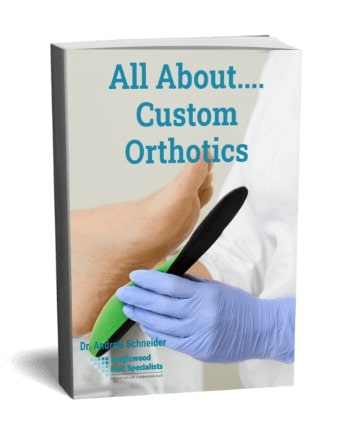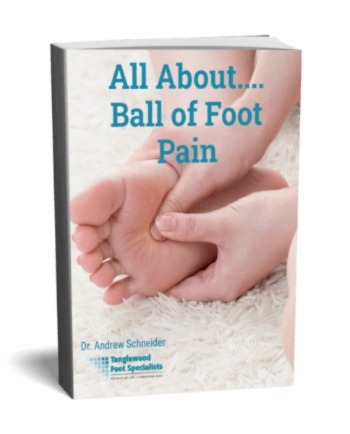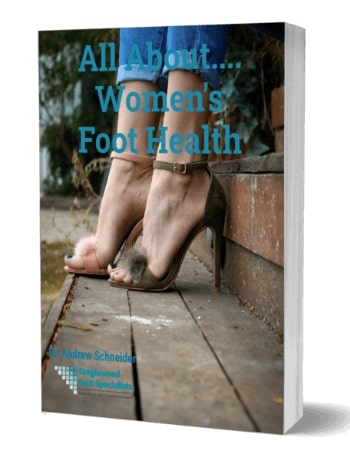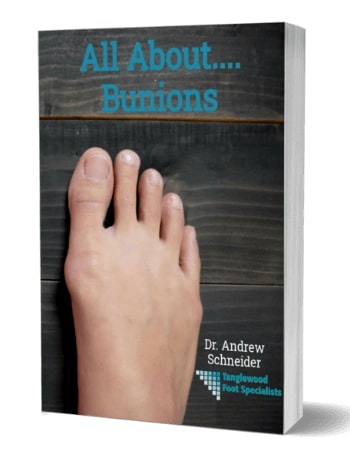There’s nothing worse than living with foot pain. When you have pain with every step you take, it makes you not want to do anything. When getting out of bed is a chore, you don’t want to exercise. One of the tools I have to help my patients manage their foot health is using custom foot orthotics.
What are Custom Foot Orthotics?![Houston podiatrist specializes in Custom orthotics]()
A custom orthotic is a custom shoe insole. It is designed specifically for you. The orthotic is made to correct any biomechanical deficiency in your gait. It helps to solve issues that you may have in walking, standing, running, or exercising.
A properly made custom orthotic will prevent a foot condition from worsening. This includes bunions and hammer toes. A custom orthotic is also used to serve as a long-term treatment for some conditions. These include plantar fasciitis and Achilles tendonitis.
The goal of a custom orthotic is to make your foot function as efficiently as possible. Because of this, they help to prevent future injuries from occurring. Also, when your feet serve as a stable base of support, it takes pressure off of your other joints. For that reason, you may experience a relief of knee, hip, or back pain as a result of wearing a custom orthotic.
How We Evaluate You for a Custom Orthotic

Dr. Andrew Schneider believes in taking the time to evaluate for a custom orthotics. Dr. Schneider performs a comprehensive lower extremity biomechanical exam. During that exam, he looks from your lower back down to your feet. He will identify any mechanical deficiencies that are present.
He then performs a gait analysis. By watching you walk, he is able to look at the nuances of your gait. You may think he’s just looking at your feet. Actually, he starts by looking at your head to see if it tilts one way or another. He then works his way down your body, ending with how the feet themselves are functioning.
Finally, a mold is taken of the feet using plaster. This mold is taken with the foot in the optimal and most stable position. Other ways have emerged to take this mold. Dr. Schneider feels that none of them capture the foot in all dimensions like plaster does. In this case, newer is not better.
How Custom Orthotics are Different from a Store-Bought Insole
Store-bought insoles vary greatly in function and quality. Some are meant to provide extra cushioning. You probably don’t need extra cushioning. You need your feet to work more efficiently.
There are other insoles that say they’re providing support. In most cases, they do provide some support. The problem is the support it provides is generic. Also, the insole is usually very flexible. So, it ends up being limited benefit.
In our office, we dispense medical-grade insoles. These offer generic support but are not as flexible as what you’d find in stores. Some people only need a medical grade insole to solve their issue. For those who need more, a custom orthotic will be the treatment option of choice.
Who Needs a Custom Orthotic?
A custom orthotic is essential for anyone who has a foot imbalance. It is also indicated for anyone who has a foot deformity. They are also a long-term treatment. It treats those who have suffered an injury because of their biomechanics.
 These conditions include:
These conditions include:
- Flat Feet
- High Arch Feet
- Plantar Fasciitis
- Heel Pain
- Arch Pain
- Achilles Tendonitis
- Bunions
- Hammer Toes
- Morton’s Neuroma
- Shin Splints
- Corns & Calluses
- Overpronation causing knee pain and hip pain
What Types of Shoes Can a Custom Orthotic Be Worn In?
A custom orthotic can fit in most shoes. In some cases, you may have more than one pair of orthotics to fit a variety of shoes. For instance, your orthotic that is designed to fit in a running shoe may be too big to fit into a dress shoe. In this case, we’d make a thinner version of the orthotic for your dress shoes. The correction is exactly the same. The only difference is how it fits into your shoes.
The one type of shoe that is a challenge are sandals. That is because a sandal has little to hold the orthotic in the shoe. If you want to be able to wear an orthotic with a sandal, there are brands of sandals that accommodate an orthotic. For your favorite sandals, bring them in. We’ll give you an honest assessment if we can make them work with a custom orthotic.
Will Wearing a Custom Orthotic Make My Feet Weaker?
One of the prevalent myths about custom orthotics is that they will cause your foot to weaken. This is not the case.
The reason some people say an orthotic weakens your foot is because they compare it to wearing a brace. When you use a brace that restricts motion, it can cause atrophy of the muscles. A custom orthotic is not a brace.
The custom orthotic is a platform that your foot sits on top of. It is an aid to position your foot for it to function in the most efficient manner. It does not, however, restrict the motion of your foot. Your foot still has access to its full range of motion. In fact, using a custom orthotic can strengthen structures that were being underused.
If you have any other concerns about a custom orthotic weakening your foot, please address them with Dr. Schneider.
How Our Custom Orthotics are Different

Dr. Andrew Schneider has become the Houston authority on custom orthotics. He trains the Houston podiatry residents on biomechanics and orthotics. You may even see residents spending time learning in our office. We even have other podiatrists referring their patients to us. They do this when their own orthotics aren’t working well enough.
Our orthotics are different because of the time we take to evaluate your mechanics and make a proper diagnosis. We do this to ensure that we collect all the information about you, your gait, and your activity. Dr. Schneider makes the semi-rigid orthotic as controlling as possible. This is to ensure they offer you the stability you need.
If you’ve been told you would benefit from a custom orthotic, look no further. Schedule an immediate appointment with Dr. Schneider. If you’ve tried orthotics and they seemed not to work for you, contact us and bring along the orthotics. Dr. Schneider loves a good challenge!
























